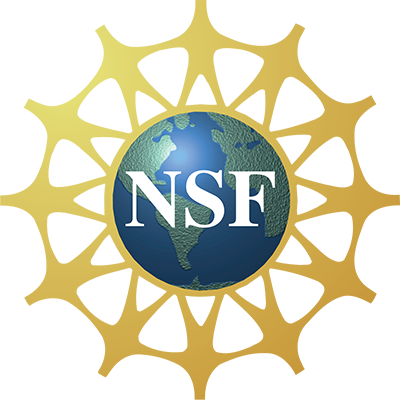Management Team
Principal Investigator / Director
Baskar Ganapathysubramanian is a Professor in the Department of Mechanical Engineering at Iowa State University. His research interests are in the areas of computational mechanics, physics and scientific computing. His lab leverages advances in applied mathematics and high-performance computing to model, design and control real-world physical phenomena. From the application point-of-view, his lab is particularly interested in energy and environment-related phenomena. They develop mathematical techniques and computational tools — model reduction, multi-scale frameworks, multi-physics simulators, control algorithms, data-driven methods to efficiently model these systems. Whenever possible, they validate the techniques using the expertise of their experimental collaborators.
Dr. Ganapathysubramanian's projects focuses on high-throughput algorithms for image processing, data dimensionality reduction, as well as mechanistic models of plant growth.
Associate Director
Soumik Sarkar is a Professor in the Department of Mechanical Engineering at Iowa State Univerity. His research focuses on development of data analytics and machine learning algorithms for autonomous perception and decision-making in complex cyber-physical systems with a large variety of application areas including building energy systems, plant science and agriculture, design and manufacturing, and intelligent transportation systems. The nature of his research is inherently multi-disciplinary, involving machine learning, information theory, theory of computation, dynamical systems, topology and statistical mechanics.
Today, precise and cost-effective sensors as well as high performance computing technologies are looking to transform traditional agriculture into an efficient cyber-physical system. In this context, engineers and computer scientists have a major role to play, and Dr. Sarkar's vision is to become one such enabler who can contribute to this critical societal need.
Dr. Sarkar's projects includes high-risk, high-gain ideas at the juncture of machine learning, artificial intelligence and plant science/agriculture. Specifically, he will develop advanced spatiotemporal data analytics and information fusion techniques to solve phenomics problems in plant pathology and plant breeding, and enable smart farming practices. Examples of Dr. Sarkar's projects will include developing deep learning based techniques for high-throughput plant stress phenotyping using heterogeneous data. He is also involved in the ISU Yield Prediction Task Force project that focuses on development machine learning frameworks for county-level corn yield prediction using long-term historical data involving weather and other environmental information, economic data, as well as management practices.
Management Team
Matt is the lead for Analytics and Insights team in RCFI. Matt and his team are responsible for working with the research and conservation teams to analyze data, generate reports, develop tools and generate insights from ISA's on-farm research activities. Matt works with other RCFI leads and directors to review proposed research and manage projects. He reviews experimental designs and analysis of data to ensure data meets ISA quality standards.
Matt is from Elizabeth, Illinois where his family farms. They raise soybeans, corn and beef cattle. Matt attended Iowa State University where he received a Bachelor's of Science in Agronomy and Genetics and then went on to earn his Ph.D. in Plant Breeding.
George Kantor is a Research Professor in the Robotics Institute at Carnegie Mellon University. His research interests are in the area of field robotics, including navigation, perception, and manipulation in unstructured environments. His lab is developing fieldable intelligent systems with a focus on the agricultural domain. Their work includes fundamental algorithmic advances such as multi-modal plant modeling and learning-based manipulation strategies. It also includes complex systems integration, bringing together diverse technical capabilities to engineer intelligent machines that can prove out concepts in real-world settings.
Dr. Kantor's projects focus on modeling physical interactions with plants, and on developing experimental platforms to support and demonstrate AIIRA advances.
Carolyn Lawrence-Dill is the Associate Dean for Research and Discovery in the College of Agriculture and Life Sciences and a Professor in the Departments of Agronomy and Genetics, Development and Cell Biology at Iowa State University. Her research program is devoted to developing computational systems that support the plant research community. Her lab's work enables the use of existing and emerging knowledge to establish common standards and methods for data collection, integration, and sharing.
Dr. Lawrence-Dill's predictive plant phenomics project focuses on three areas: Developing standards that democratize data access and analysis and enable community development of systems that interoperate; creating examples of successful phenotypic prediction enabled by developed standards, a proof of concept, and to advance novel concepts for downstream broad implementation; and developing a coordinated network of research groups to develop and deploy data standards relevant to genotypic diversity, environmental documentation, and phenotypic prediction.
Nirav Merchant is the Co-PI for NSF CyVerse a national scale Cyberinfrastructure for life sciences and NSF Jetstream the first user-friendly, scalable cloud environment for NSF XSEDE.
He received his undergraduate degree in Industrial engineering from the University of Pune, India, and graduate degree in Systems and Industrial Engineering from the University of Arizona (1994).
Over the last two decades his research has been directed towards developing scalable computational platforms for supporting open science and open innovation, with emphasis on improving research productivity for geographically distributed interdisciplinary teams.
Patrick Schnable is a Charles F. Curtiss Distinguished Professor in the Department of Agronomy at Iowa State University, Iowa Corn Promotion Board Endowed Chair in Genetics, and Baker Scholar of Agricultural Entrepreneurship. He manages a research program that emphasizes interdisciplinary approaches to understanding plant biology. His own expertise is in the areas of genetics, molecular biology, genomics, bioinformatics, and high-throughput phenotyping but he collaborates with researchers in diverse fields, including agricultural and computer engineering, plant breeding, statistics and soil science. He is the director of the Plant Sciences Institute, and under his direction, the Plant Sciences Institute's Faculty Scholars are pursuing unique interdisciplinary approaches to the field of predictive plant phenomics.
Dr. Schnable's scientific investigations of the maize genome have been wide-ranging and he has developed and/or deployed a number of important genomic tools and resources. However, the focus of his PSI project is on constructing and deploying new sensors and robots to facilitate the automated collection of the large volumes of phenotypic data at multiple locations needed to develop an understanding of GxE interactions. For example, networked systems of hundreds of computer-controlled cameras that enable high-throughput, high-resolution, field-based time-lapse photography for studying maize growth/development and responses to environmental stresses have been deployed at multiple locations over multiple years.
Dr. Michelle Segovia is an Genuardi Assistant Professor of Food and Agribusiness Marketing and Management at the University of Delaware. Her research focuses on behavioral and experimental economics, particularly the economics of food consumption and health by combining lab and field experiments with neurophysiological data, such as eye tracking and electroencephalography, to better understand the factors influencing decision making (e.g. purchasing decisions, food choices, and time and risk preferences).
Dr. Segovia received her Ph.D. from the from the Department of Agricultural Economics at Texas A&M University.
Dr. Arti Singh is an Associate Professor in the Department of Agronomy at Iowa State University with 15 years of plant breeding experience. After obtaining her Ph.D. degree from G.B. Pant University in India, she worked as a Post-doctoral fellow at the University of Saskatchewan and then at Agriculture and Agri-Food Canada prior to joining Iowa State University.
She has authored two textbooks Disease and Insect Resistance in Plants
and
Plant Breeding and Cultivar Development.
She has published peer reviewed research
articles in reputed and high impact journals including the Proceeding of National Academy of
Sciences and Trends in Plant Science. She has been awarded competitive grants by USDA-NIFA
Agriculture and Food Research Initiative (AFRI) Food and Agriculture Cyberinformatics and
Tools (FACT), National Science Foundation, Iowa Soybean Association, IA Soybean Research
Center, and United Soybean Board.
She leads a green (Vigna radiata) and black gram (Vigna mungo) breeding program focused on developing new varieties for plant-based protein markets. Her research projects are geared towards harnessing genetic diversity for genetic gain, utilization of advanced data analytics particularly machine and deep learning for early disease and stress signatures, and genetic/genomic studies on abiotic and biotic stress resistance.
Asheesh K. Singh (Danny) is a Professor of Agronomy and Bayer Chair in Soybean Breeding in the Department of Agronomy at Iowa State University. He leads a breeding, discovery and tool-development driven group, with an interest in using transcending approaches and research activities to prepare and promote the next generation of exceptionally capable and creative people who will work in inter- and trans-disciplinary teams to conduct critical research and establish productive breeding and research programs.
The team is most interested in the development of prescriptive cultivars that are tailored for stakeholders' requirements and future climatic scenarios. Conceptually, a prescriptive cultivar is a variety that is developed for a specific agronomic production system and environment using genetic knowledge, rational breeding designs and selection strategies to combine the prescribed characteristics. Their projects utilize high-throughput phenomics (using ground and aerial imaging systems and different sensors) linked with genomic technologies to generate, analyze and interpret data using computational tools such as machine learning and methods for predictions in non-linear systems. With the use of sensors and data analytics methods, they develop interpretive models to elucidate genetic-physiological mechanisms for yield improvements (of associated above ground and root traits) in diverse production practices, and generate new biological insights, develop new methods for analyzing phenomics-related data sets and create new tools that will deepen our trait understanding. They also utilize robotics-assisted breeding through the development and deployment of ground and aerial robotics in a networked connection for saliency driven phenotyping with the intent to remove and/or minimize measurement variability and improve breeding designs.
















